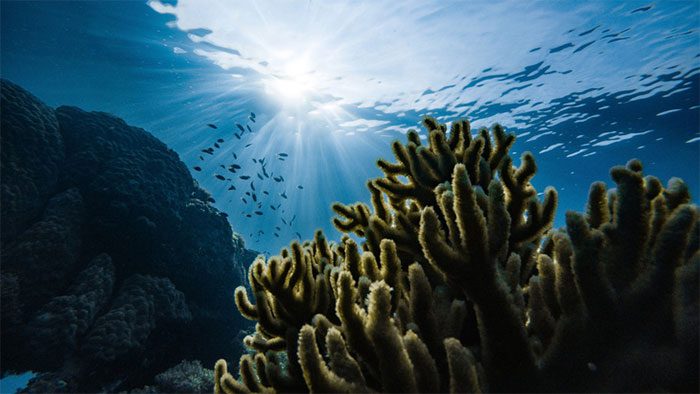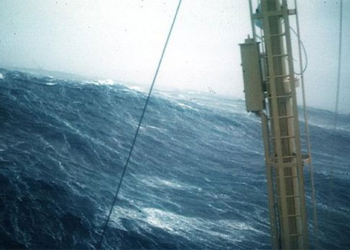A recent study by Australian scientists has revealed that oxygen levels at depths of the Southern Ocean are decreasing at a much faster rate than previously predicted.
The environment of Antarctica has a significant impact on the Earth, influencing climate and all other aspects of life. As a result, scientists are particularly concerned about changes in this region.

The world’s oceans are gradually losing oxygen – (Photo: OCEAN DISCOVERY LEAGUE).
A recent study by Australian scientists has indicated a concerning situation: oxygen concentrations at depths of the Southern Ocean are declining at a much faster pace than anticipated.
As the ice sheets in Antarctica melt due to warming climates, the sinking process of tons of oxygen-rich salty water from the ocean surface has slowed down. This has significantly impacted a critically important process: replenishing oxygen in the deep oceans.
When dense, oxygen-rich salty water sinks, it becomes Antarctic Bottom Water (AABW). Researchers from the Commonwealth Scientific and Industrial Research Organisation (CSIRO) explain that this process can be described as an “oxygen pump” into the Pacific, Atlantic, and Indian Oceans.
Dr. Kathy Gunn, the lead researcher, and her team employed a new method to measure deep circulation in Antarctica, also known as the Southern Ocean.
They combined observational data with model simulations. Alongside ship-based observations, they also analyzed measurements of speed, temperature, and salinity from instruments attached to moorings on the seabed.
“Our observations indicate that deep ocean circulation around Antarctica has slowed by approximately 30% since the 1990s,” Dr. Kathy Gunn stated.
While previous models predicted that AABW circulation could slow by over 40% by 2050, the new findings suggest that this decline has occurred much sooner.
One significant consequence of this process is the stagnation of the ocean floor.
Mr. Matthew England added: “This will deplete nutrients in the deep ocean, reducing the nutrients available to support marine life near the ocean surface.”
The research team warns that the overall decline in oxygen levels is altering the structure and chemical properties of the deep ocean, which could have widespread implications in the coming years.
These findings have been published in the journal Nature Climate Change.





















































